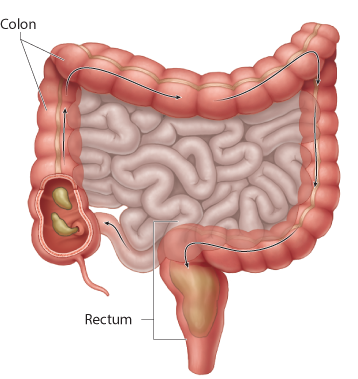

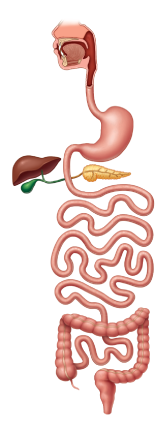







stomach
esophagus
mouth
colon
small intestine
rectum
pancreas
liver
gallbladder
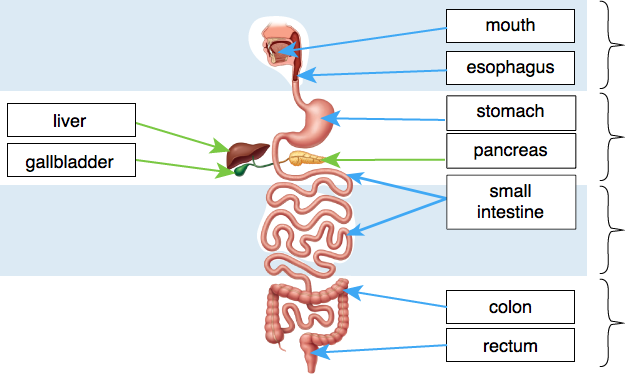
absorption
digestion
elimination
ingestion
Which of the following processes primarily takes place in the mouth?
mechanical digestion (large pieces of food are physically broken down into smaller pieces of food)
chemical digestion (the bonds between food molecules are broken with enzymes)
both mechanical and chemical digestion
neither mechanical nor chemical digestion

Photo credit: Young man, profile, with mouth/teeth overlay: Image Source/Veer
Which structures in the mouth are responsible for mechanical digestion?
molars, incisors, and salivary glands
molars, incisors, canines, and premolars
salivary glands, molars, and premolars
salivary glands only

Photo credit: Young man, profile, with mouth/teeth overlay: Image Source/Veer
Which structures in the mouth are responsible for chemical digestion?
molars, incisors, and salivary glands
molars, incisors, canines, and premolars
salivary glands, molars, and premolars
salivary glands only

Photo credit: Young man, profile, with mouth/teeth overlay: Image Source/Veer
You are eating a roast beef sandwich with lettuce on white bread. Which component of the sandwich would be broken down by alpha-amylase?
roast beef
white bread
lettuce
Which of the following occur in the esophagus?
mechanical digestion (large pieces of food are physically broken into smaller pieces of food)
chemical digestion (the bonds between food molecules are broken with enzymes)
both mechanical and chemical digestion
neither mechanical nor chemical digestion
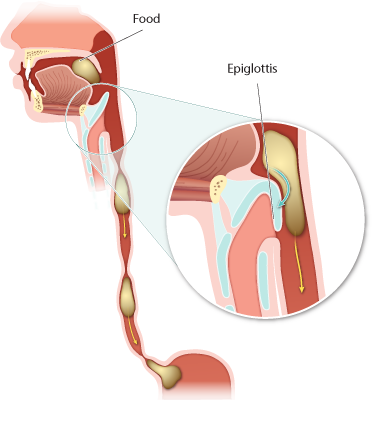
Which of the following occur in the stomach?
mechanical digestion (large pieces of food are physically broken into smaller pieces of food)
chemical digestion (the bonds between food molecules are broken with enzymes)
both mechanical and chemical digestion
neither mechanical nor chemical digestion

Which component of your roast beef sandwich with lettuce on white bread would be broken down by pepsin?
roast beef
white bread
lettuce
Which of the following occur in the small intestine?
mechanical digestion (large pieces of food are physically broken into smaller pieces of food)
chemical digestion (the bonds between food molecules are broken with enzymes)
both mechanical and chemical digestion
neither mechanical nor chemical digestion
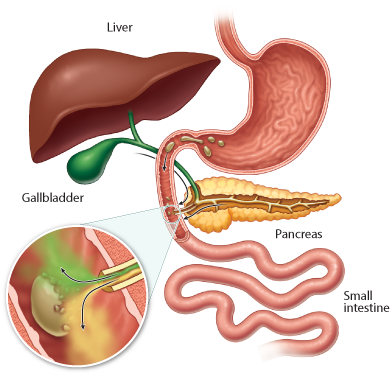
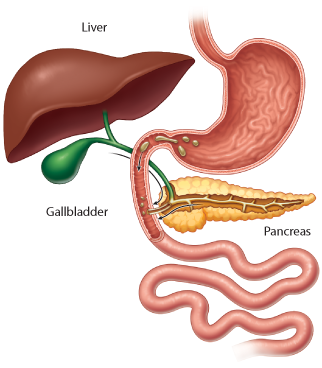
produces bile, which breaks down globules of fat into smaller droplets that can be more easily digested and absorbed
secretes substances that neutralize the chyme as well as enzymes that aid in the chemical digestion of carbohydrates, proteins, and fats
stores bile and releases it into the small intestine
gallbladder
liver
pancreas
In addition to digestion, what other process occurs in the small intestine?

absorption of energy-rich food molecules
storage of feces prior to defecation
reabsorption of water, salts, and some vitamins
storage of feces and reabsorption of water, salts, and some vitamins
In addition to digestion, what other process occurs in the colon (large intestine)?
absorption of energy-rich food molecules
storage of feces prior to defecation
reabsorption of water, salts, and some vitamins
storage of feces and reabsorption of water, salts, and some vitamins
